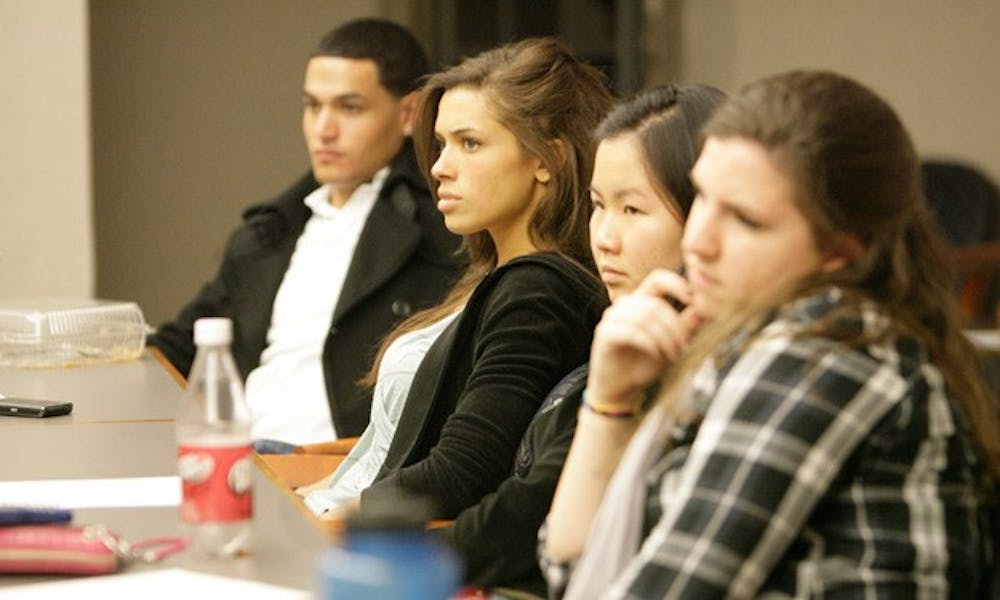As the University looks to promote sustainability on campus, members of the Duke University Student Dining Advisory Committee suggested ways dining vendors can follow suit.
At its meeting Monday night, DUSDAC brainstormed various options to make campus eateries more environmentally friendly with sophomore George Carotenuto, buildings and grounds advisor for Duke Student Government’s Student Environmental Sustainability Committee.
Although the University has pushed for greener practices before, members said many students are unaware of these initiatives.
Members said the Great Hall’s reusable clamshell container program, which started last Spring, is largely unknown. Through this program, students can eat their food in reusable to-go containers and then drop them off in a designated bin once they finish. Afterward, the containers are washed and sanitized.
“The clamshell program is grossly under-used right now but they are waiting to renew it,” said DUSDAC member Tina Siadak, a senior. “People use clamshells for Sitar, but for other places, they are all out of sight and [students] don’t know that [they] can use it.”
Carotenuto and DUSDAC members also talked about removing plastic bags from campus eateries and replacing them with reusable bags. Members noted vendors like The Loop hand out plastic bags regardless of the purchased item’s size.
Further, SESC has already met with Duke Stores regarding how to reduce plastic bag consumption. The store’s employees have recently been asking customers if they would like a bag of instead of giving one away immediately, Carotenuto said.
Additionally, members looked at the advantages and disadvantages of implementing a small student surcharge on plastic bags—which would be less than 50 cents per bag.
“Having a surcharge on plastic bags and making students carry reusable bags would be an extra task for students when they already have a lot of things on their plate,” said committee member Ben Berman, a junior.
Other ideas to promote sustainability included eliminating order forms and recycling receipts. Carotenuto added that many to-go containers could be saved if students brought their own.
DUSDAC members agreed that order forms at venues like The Tower and Armadillo Grill are unnecessary and a waste of paper.
Carotenuto further explained that vendors are legally obligated to give receipts, but they often lack recycling bins for people to put them in. Students thus end up throwing receipts away in regular trash cans.
“Unless you are at a big restaurant, it is really hard to find a recycling bin on campus,” said DUSDAC co-Chair Alex Klein, a senior.
In other business:
Siadak also discussed possible changes that could be made at Devil’s Bistro, since it is not bringing in enough business. Devil’s Bistro management is considering hosting events with live DJs, bringing in bands and even changing its menu because the dining choices are too “all over the place,” she said.
Get The Chronicle straight to your inbox
Signup for our weekly newsletter. Cancel at any time.

